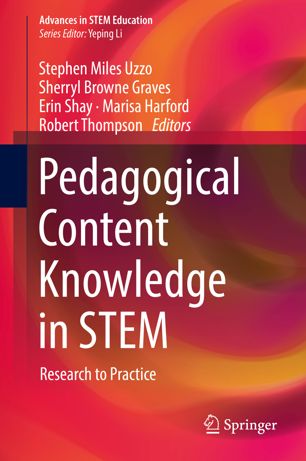

Most ebook files are in PDF format, so you can easily read them using various software such as Foxit Reader or directly on the Google Chrome browser.
Some ebook files are released by publishers in other formats such as .awz, .mobi, .epub, .fb2, etc. You may need to install specific software to read these formats on mobile/PC, such as Calibre.
Please read the tutorial at this link: https://ebookbell.com/faq
We offer FREE conversion to the popular formats you request; however, this may take some time. Therefore, right after payment, please email us, and we will try to provide the service as quickly as possible.
For some exceptional file formats or broken links (if any), please refrain from opening any disputes. Instead, email us first, and we will try to assist within a maximum of 6 hours.
EbookBell Team

4.8
14 reviewsThis volume represents both recent research in pedagogical content knowledge (PCK) in science, technology, engineering and math (STEM), as well as emerging innovations in how PCK is applied in practice. The notion of “research to practice” is critical to validating how effectively PCK works within the clinic and how it can be used to improve STEM learning. As the need for more effective educational approaches in STEM grows, the importance of developing, identifying, and validating effective practices and practitioner competencies are needed. This book covers a wide range of topics in PCK in different school levels (middle school, college teacher training, teacher professional development), and different environments (museums, rural).
The contributors believe that vital to successful STEM education practice is recognition that STEM domains require both specialized domain knowledge as well as specialized pedagogical approaches. The authors of this work were chosen because of their extensive fieldwork in PCK research and practice, making this volume valuable to furthering how PCK is used to enlighten the understanding of learning, as well as providing practical instruction. This text helps STEM practitioners, researchers, and decision-makers further their interest in more effective STEM education practice, and raises new questions about STEM learning.